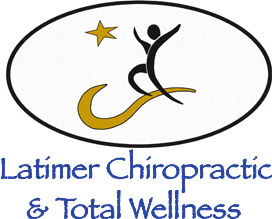Sinus irritation (sinusitis) affects over 39 million people every year. It typically occurs when the mucous membranes in your nose and sinuses become irritated by a cold, allergy, or pollution (for example) which then cause sinus tissue to become inflamed. Once inflamed, the motion of your cilia (tiny hairs that coat the mucous membranes) slows down. This irritation stimulates your mucous glands to secrete more mucus than usual to dilute the irritation.
As a result,excess mucus gets trapped in your sinuses, where it can easily become infected.
Sinusitis is Often from Mold and Fungus or Viral Infection
Sinus issues are very easily misdiagnosed. Recurring sinus problems and postnasal drip can indicate that you're being affected by mold/ fungi or viral infection. These irritants needs immune support, not antibiotics.
The Mayo Clinic,in the 1990s, study suggests that 96 percent of the people who suffer from chronic sinusitis are "fungal sensitized," meaning they have immune responses triggered by inhaled fungal organisms!
Antibiotics and steroids can actually worsen fungal-related infections by destroying the balance of good bacteria that helps fight off the bad ones. (gut and mucous membranes), creating an internal incubation ground for further fungal growth. The book, Mold: The War Within is useful.
What To Do For Healthy Sinuses
--Get a chiropractic adjustment. Having your nervous system optimal makes a big difference.
--Drink hot liquids, such as tea or hot chicken soup. It will help moisturize your mucous membranes, speeding up the movement of your cilia and thus washing mucus out of your sinuses more quickly.
--Apply warm compresses to your face, three times a day for five minutes will help increase the circulation in your sinuses
--Irrigate your sinuses. In a study saline irrigation (neti pot) was found to decrease nasal congestion more effectively than saline sprays alone. More rinsing of the sinuses, thins mucus, decreasing swelling and removing debris, bacteria, allergens and inflammatory substances, Decreasing swelling allows the sinuses to fend of fungi and virus and stay healthier.
Using saline spray-Blow your nose well, spray up each nostril several times, go face down for a minute allowing the saline to flow forward into the sinuses.
--To make your own saline solution, just add one teaspoon of himalayan or sea salt to one pint of distilled water. use a saline solution that does not contain benzalkonium, a preservative that can impair your nasal function and might sting and burn.
--Clear your sinuses with an aromatherapy steam bath. a couple of drops of eucalyptus or menthol oil into a bowl or mug of hot water. Breathe the vapors. Or Vick's VapoRub on your skin under your nose.
--Unclog your sinuses with the right foods. Horseradish, grated on a sandwich, or some Japanese wasabi mustard can also help
--Elevate your head when sleeping.
--Dust your bedroom. Dust and dust mites can wreak havoc on your mucous membranes, especially when you're asleep and your cilia are at rest. Use a HEPA filter air purifier. Also wash your pillow every 3-6 months and use a hot dryer.
How to Prevent Sinus Infections Before They Start
Poor food quality, excessive exposure to toxic chemicals and a high-stress lifestyle puts you at greater risk for not only sinus infection but all disease.
--Avoid eating sugar or grains. That inc’ds juices and breads/cereals.
--Take a high-quality animal-based omega-3 supplement, a potent antiinflammatory.
--Optimize your vitamin D level with a vitamin D3 supplement.
--Consume organic coconut oil. rich in lauric acid, known for being antiviral, antibacterial and antifungal
--Take a quality Probiotics
--Avoid eating these top 10 mycotoxic foods Alcoholic beverages, Corn, Wheat, Barley ,Sugar , Sorghum, Peanuts, Cottonseed oil, Hard Cheeses
--Get proper sleep
--Get regular exercise
-Consider Echinacea, goldenseal, astragalus, vitamin C complex, Zinc, etc.
